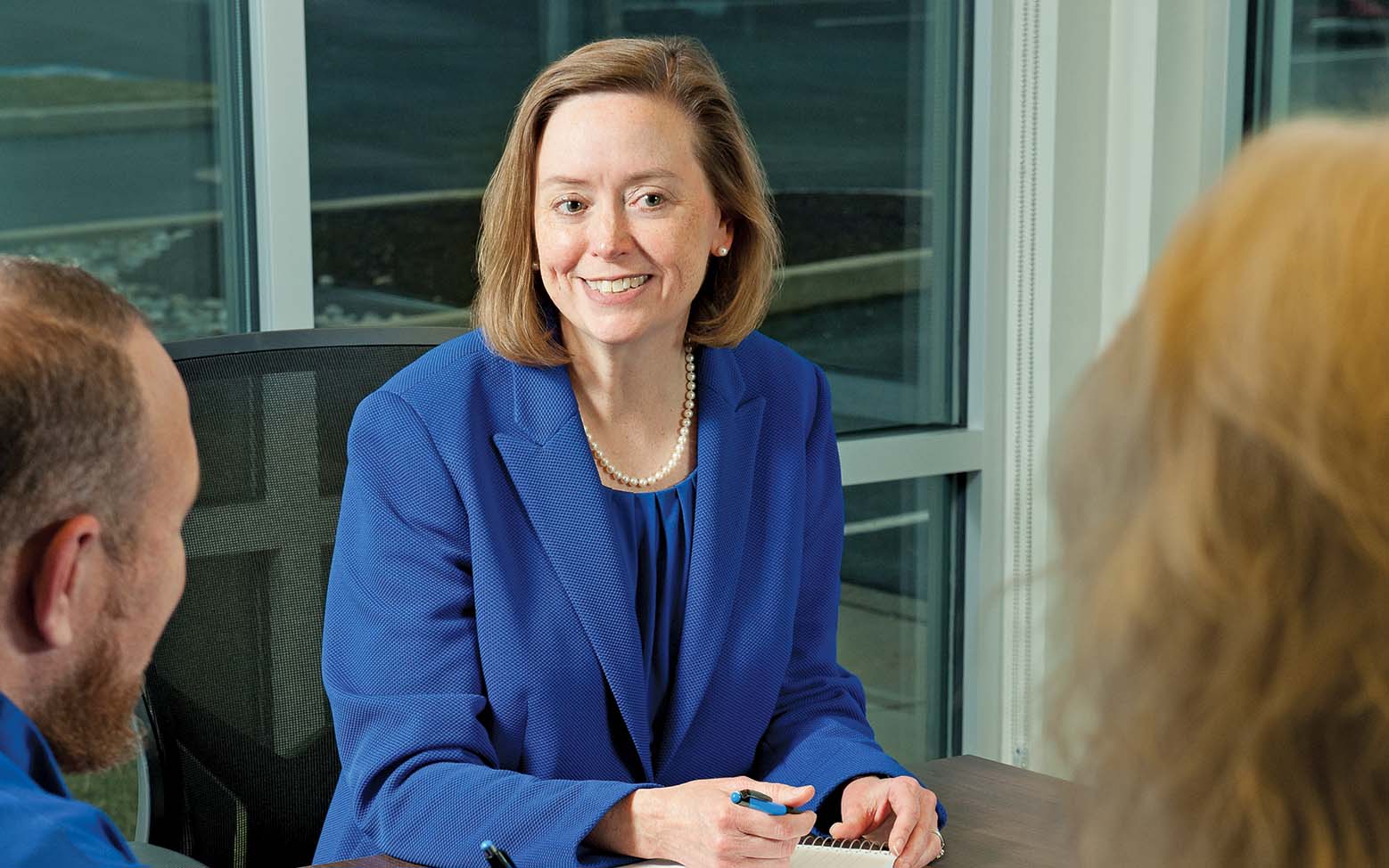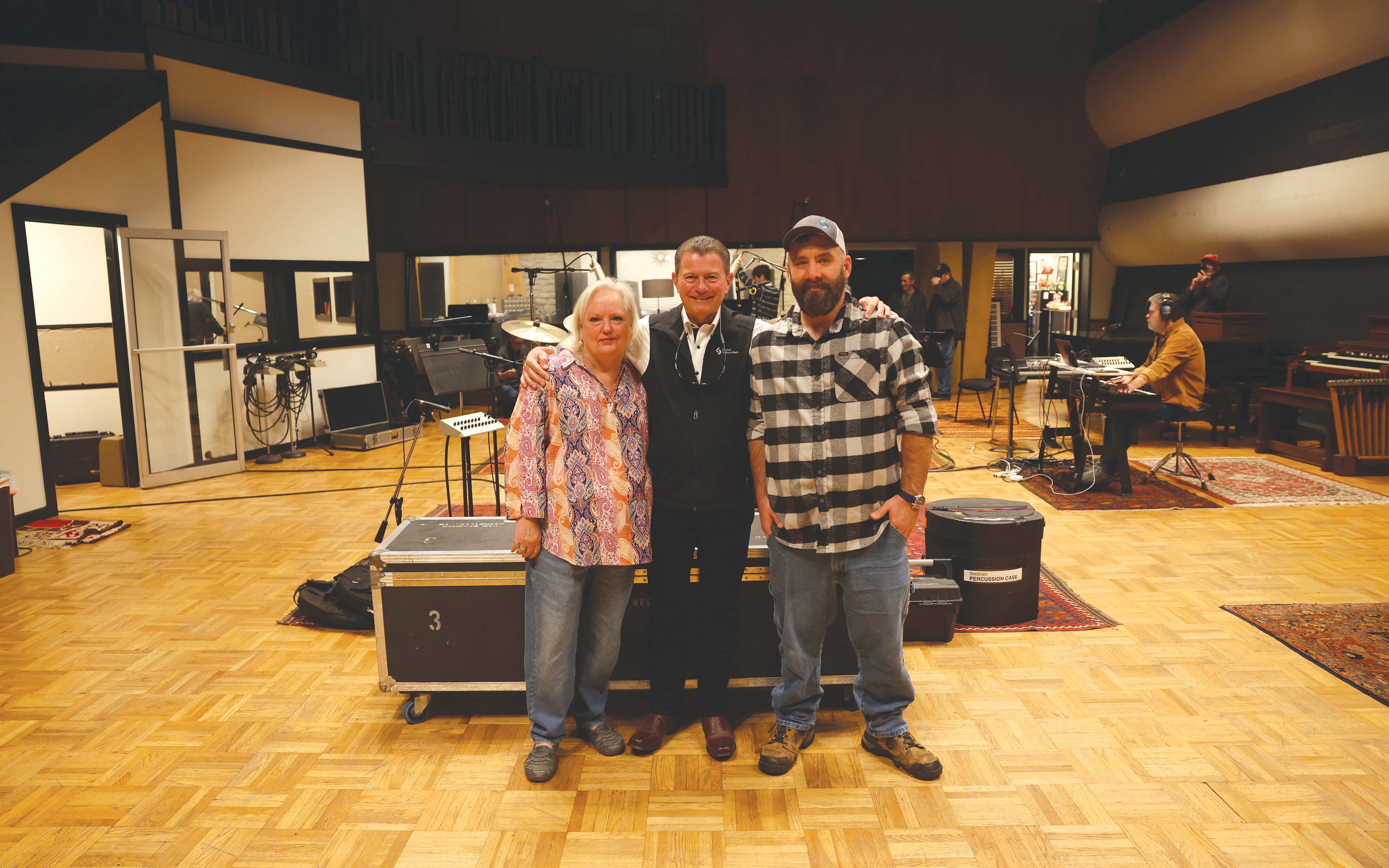In extraordinary circumstances, this year’s National Community Bank Service Award honorees have gone the extra mile for their communities.
2017 ICBA National Community Bank Service Award Honorees
0817 Service Awards 2k
September 01, 2017 / By ICBA
In extraordinary circumstances, this year’s National Community Bank Service Award honorees have gone the extra mile for their communities.
By Andrea Lahouze
In cities and towns across the country, community banks serve their local areas in ways that go far beyond day-to-day banking services. The National Community Bank Service Awards, presented by ICBA and sponsored by FIS, recognize some of the community banks that have stepped up in exceptional ways. Here are the stories of the 2017 winners.
Grand National Award Winner
Poca Valley Bank, Walton, W.Va.
Thursday, June 23, 2016, is a date that many West Virginians will never forget. That evening, multiple lines of thunderstorms arranged themselves over the same area and dumped between eight and 10 inches of rain in 12 hours. Water rushed down mountains and hillsides, swelling rivers to all-time highs. Creeks that were typically just a few inches deep towered above six feet. Entire roads and bridges were washed away. It was the third-deadliest flood in state history, killing more than 23 people. The National Weather Service said an event like it could be expected only once every 1,000 years.
By the time the waters receded on Saturday, roughly 1,200 homes had been damaged or lost, along with hundreds of businesses. Two of those businesses were the Clendenin branch and mortgage processing facility of Poca Valley Bank.
“Going back to that point in time is hard,” says Linda Ashley, president and CEO of the $330 million-asset, seven-branch bank. “We lost two grade schools, a high school, the post office; most of the churches were gone. The town was literally wiped out. The grocery stores, the gas stations, everything. We had seven employees who lost everything or incurred significant loss. So the call to action was immediate.”

Bank employees first got to work confirming the safety of fellow employees and securing the cash and safe deposit box contents in the Clendenin branch that were damaged or lost. The bank immediately deferred loan principal payments for six months for customers choosing to have relief and offered low-interest loans to help flood victims repair and rebuild. Staff also worked almost around the clock that weekend to convert leased space at the Charleston Town Center mall into a mortgage operations facility that resumed operations the following Monday.
“People were needing loans and cash much more so than normal because of the disaster,” says John Cole, CIO. “It’s remarkable when you look at how all of our staff responded in a very stressful situation, while a lot of them were dealing with their own loss of homes, property and cars.”
Over the past year, Poca Valley Bank has given nearly $100,000 to help local agencies and school systems get back on their feet. Among its contributions: loan forgiveness, purchasing a mobile home for a displaced family and helping little leagues and school systems maintain operations, sometimes as the sole provider of financial assistance.

Bank employees also donated hundreds of hours in volunteer efforts. They distributed food, sponsored a winter clothing giveaway and participated in cleanups across the community. One employee led a coat drive to get winter coats to children and families. And everyone listened to fellow residents who just needed to talk about the flood and the damage they faced.
More than a year later, rebuilding efforts are still underway. Cole says some employees only recently moved into their rebuilt homes or completed reconstruction. Poca Valley Bank was thrilled to reopen its Clendenin branch in July and continues to help in rebuilding efforts across the area.
“The employees of Poca Valley Bank came together in a very difficult situation to show the community the type of support and relationships they deserve from a community bank,” says Kevin Jennings, vice president and marketing director. “We are proud and blessed to be employed by an organization that chose to help others in their biggest time of need.”
National Award Winner
The Bank of Missouri, Perryville, Mo.
On the evening of Feb. 28, 2017, an F-4 tornado ripped through Perryville, Mo., on a 50-mile rampage that would end in southern Illinois. Winds reached 180 miles per hour, causing extensive damage that uprooted trees, sent cars airborne and leveled homes and businesses in its path.
At the Bank of Missouri, which has two locations in Perryville, CEO Adrian Breen had only been in the job for 20 days when the tornado hit. The bank’s 411 employees sprang into action to help. Among the first tasks was securing customers’ financial information from identity theft.
“People started walking in carrying people’s soaking wet bank statements from miles away,” Breen says. “But those are the good people, and we all know there are a few bad apples out there who are going to try to take advantage of people.” The bank offered storm victims one year of free IDProtect service.
Next, executive team members quickly approved a series of friendly loans to help residents rebuild, remodel, replace or repair. Among the loan options: construction, home improvement, total home rebuild, purchase of an existing property, second home mortgages, auto and more. The bank covered all closing costs, and the marketing team hand-delivered flyers to community members.
“We wanted people to know that this [was] available to help them, not to enhance the bank. … Financially, there was no expectation that it would be a win for the bank.”
—Adrian Breen, The Bank of Missouri
“We wanted people to know that this [was] available to help them, not to enhance the bank,” Breen says. “If you looked at the numbers, we ate a lot of the cost involved. Financially, there was no expectation that it would be a win for the bank.”
Many bank employees are also active volunteers for nonprofit organizations. Marla Barber, information security officer for the bank, is a volunteer for the American Red Cross. She says the bank didn’t hesitate to let her serve at a Red Cross shelter for three days after the tornado hit.
“I am very thankful to the bank for allowing that to happen,” she says, “because the Red Cross needed someone from the community to be the liaison for what the community needed and had to provide, and what the Red Cross and other organizations could bring to the table.”
The $1.3 billion-asset community bank worked to meet many of the affected residents’ basic needs. The Operations Center building with an on-site workout facility opened its showers and bathrooms to a few people in need. When a group of teachers and staff from the local school started a laundry program to help residents wash their clothes, which had been mixed with tiny bits of itchy insulation in the debris, the bank donated all of the quarters for the laundromat. The weekend after the storm, bank executives and several banking team members grilled hot dogs to feed more than 300 residents and volunteers.
Breen credits the Bank of Missouri’s immediate disaster response efforts to the community and bank’s long-standing culture.
“Most of the people here would give you the shirt off their back, and I would have to say just about every one of our employees here would do the same,” he says. “It’s been that way for a long time, and that’s in our bank’s DNA. When people see our logo, that’s the expectation.”
National Award Winner
ChoiceOne Bank, Sparta, Mich.
More than 11 million apple trees dot the state of Michigan. They cover 35,500 acres divided among 825 family farms, and they make Michigan the nation’s second-largest producer of apples. ChoiceOne Bank’s 12 branches and one loan production office sit in west Michigan, the heart of the state’s apple country, and farmers make up about 15 percent of its customers.
Each year for many years, harvest season has brought a large influx of seasonal workers from the southern United States who come with their families to pick apples, peaches, blueberries and asparagus. They call Michigan home for about four to six months out of the year.
A few years ago, local farmers also began hiring workers from Mexico and Central America using the H-2A visa program. They were most commonly paid in checks, which they would pay a fee to cash before returning home. Unfortunately, carrying large amounts of cash made them targets for robberies. The $625 million-asset ChoiceOne Bank wanted to find a safe and secure way to help its farmer customers pay their employees.
The community bank first worked to offer free check-cashing services for seasonal employees. Without cars, H-2A employees were often bused to various places such as the bank, grocery store and post office. “We were noticing an influx of previously unbanked individuals coming into our locations by the busload to cash checks, and that can overwhelm a small branch if you’ve got 30 or 40 workers coming in at once,” says Kelly Potes, president and CEO.

Next, the bank worked to open checking and savings accounts for H-2A workers, many of whom were previously unbanked in the US. Knowing its new customers wanted to spend the workday working instead of stopping at the bank, ChoiceOne Bank hosted account-opening nights. The community bank has also worked with some farmers to begin offering direct deposit payments to farm employees. Direct deposit payees receive a customized pay card that allows them to withdraw cash from ATMs in the US, Central America and Mexico, eliminating the need to cash checks and carry cash during international travel.
Last year, ChoiceOne Bank opened 60 new accounts for H-2A workers. It expects to open another 60 during this year’s harvest season.
The bank also wanted to offer banking services in Spanish for the community’s growing number of Spanish-speaking residents. In a staff-led effort, the bank launched its Hola! Line. When customers call the line, it rings through only to bank employees who are fluent in Spanish. When more employees wanted to help, ChoiceOne Bank offered after-hours classes in conversational Spanish. Twenty people signed up immediately.

Potes says the bank’s efforts to serve its farmer customers, their employees and Spanish-speaking residents have been fully embraced by the community. He advises other community banks looking to better serve farmers and seasonal workers to pinpoint solutions by looking at the challenge “from the client’s perspective, and not just what’s easiest for the bank.”
“Talking to all the stakeholders and coming up with a solution that’s both compliant and puts the client first is key,” Potes adds. “When you go the extra mile, it really cements the [bank’s] relationship with that customer base.
2017 Honorable Mentions
Five community banks earned accolades for outstanding service to their communities.
In American Fork, Utah, $680 million-asset Bank of American Fork created AccountSmart Tools for Seniors, a checking account with third-party monitoring, financial power of attorney, automatic transfers and automatic bill pay to help senior citizens avoid becoming victims of financial abuse.
In Casper, Wyo., $829 million-asset Hilltop National Bank worked with Townsquare Media to hold the town’s first Lemonade Day, a free, communitywide educational event designed to teach children how to start, own and operate their own business: a lemonade stand.
In Washington, D.C., $418 million-asset National Capital Bank of Washington established the National Capital Bank Foundation, a donor-advised fund, in honor of assistant branch manager Marlow Thomson, who was killed during a robbery of its Highlands branch in 1996. Bolstered by rent from the closed bank branch and more than 500 annual employee volunteer hours, the fund has given $1.7 million to community organizations since inception.
In Williamstown, W.Va., $160 million-asset Williamstown Bank employees and their family members banded together to volunteer hundreds of hours in flood disaster relief efforts two hours away in Clay County. They also raised $20,000 in cash donations to support flood victims and helped over 20 specific families recover and rebuild.
In The Woodlands, Texas, $5 billion-asset Woodforest National Bank partnered with the Texas Department of Housing and Community Affairs to improve access to homeownership for low- and moderate-income residents through a $10 million loan agreement that expanded access to down payment assistance. The program has helped more than 1,400 new first-time homebuyers, including more than 7,400 families and individuals. Employees have also provided more than 3,500 hours of financial education through homebuyer education workshops.
Andrea Lahouze is deputy editor of Independent Banker.
Subscribe now
Sign up for the Independent Banker newsletter to receive twice-monthly emails about new issues and must-read content you might have missed.
Sponsored Content
Featured Webinars
Join ICBA Community
Interested in discussing this and other topics? Network with and learn from your peers with the app designed for community bankers.
Subscribe Today
Sign up for Independent Banker eNews to receive twice-monthly emails that alert you when a new issue drops and highlight must-read content you might have missed.
News Watch Today

Join the Conversation with ICBA Community
ICBA Community is an online platform led by community bankers to foster connections, collaborations, and discussions on industry news, best practices, and regulations, while promoting networking, mentorship, and member feedback to guide future initiatives.












